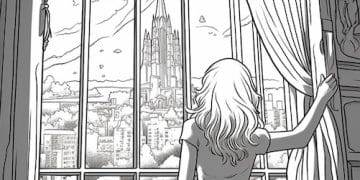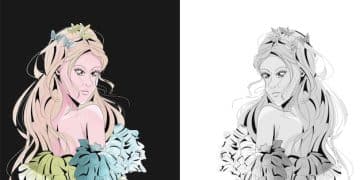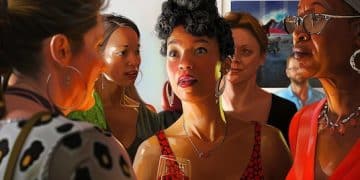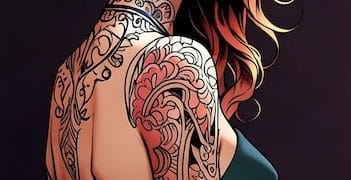Unveiling the Best Josei Manga: A Guide for Discerning Readers

Josei manga, targeted towards young adult women, explores complex themes, realistic relationships, and mature storylines, differentiating itself from shojo manga’s focus on younger heroines and idealized romance.
Are you looking for manga that portrays mature themes and complex characters aimed at a young adult female audience? Look no further! Let’s dive into the world of josei manga, a genre that tackles realistic relationships, career challenges, and personal growth with a depth often unseen in other manga categories.
What is Josei Manga?
The term ‘josei’ directly translates to ‘woman’ in Japanese, and as its name suggests, josei manga is primarily targeted towards a young adult female audience. This demographic typically includes women ranging from late teens into their forties. Unlike shojo manga, which is aimed at younger girls and frequently features idealized romance and fantastical elements, josei manga offers a more mature and realistic perspective on life.
Josei manga often explores themes such as career, relationships, and self-discovery with a greater degree of complexity. The characters in josei manga are usually older, often depicted as adults navigating the challenges of work, love, and family life. These stories often delve into the emotional and psychological aspects of their characters, making them more relatable and engaging for readers.
Key Characteristics of Josei Manga
Josei manga distinguishes itself through several defining characteristics that cater to its target audience:
- Mature Themes: Deals with more complex and realistic themes such as career, relationships, societal expectations, and personal identity.
- Complex Characters: Features older main characters who are typically adults with relatable struggles and flaws.
- Realistic Relationships: Portrays relationships that are nuanced and often challenging, reflecting the complexities of real-life connections.
- Art Style: Employs an art style that is often more detailed and less stylized than shojo, aiming for a more realistic portrayal of characters and settings.
In summary, josei manga offers a view into the lives of adult women, focusing on their adventures, trials, and aspirations. This creates a more grounded and resonating material especially for audiences that are themselves traversing through similar life stages.

Popular Themes in Josei Manga
Josei manga delves into a variety of themes that resonate with its target demographic, addressing the multifaceted aspects of womanhood. Among the most frequently explored themes are workplace dynamics, romantic relationships, and personal growth.
The portrayal of these themes tends to be more realistic and less idealized than in shojo manga. Josei stories address mature subjects such as marital problems, career frustrations, and the challenges of balancing personal aspirations with societal expectations, offering insightful commentary on the trials of adult life.
Workplace Dynamics
One of the prominent themes in josei manga is the depiction of workplace dynamics. Many stories focus on the characters’ professional lives, exploring the challenges, and triumphs, and interpersonal relationships that define their careers.
These series often portray the obstacles that women face in the workplace, such as gender discrimination, work-life balance issues, and career stagnation. They also delve into the complexities of office politics, the nuances of leadership, and the satisfaction that comes from achieving professional goals. Some titles use the workplace as a setting for romance, adding an additional layer of complexity to the characters’ lives.
Romantic Relationships
Josei’s treatment of romantic relationships distinguishes itself from shojo manga with its realistic and nuanced approach. Series in this category explore the complexities in relationships, ranging from initial encounters to married life, delving into the intricacies of love, conflict, and commitment.
Many josei stories break away from conventional romance tropes and provide nuanced storylines. They dig into topics like infidelity, miscommunication, and the challenges of long-term partnership head-on. These narratives often portray characters learning and growing through their relational experiences, and provide a more relevant perspective for older adolescent readers.
Personal Growth
The focus on personal growth constitutes a major theme in josei manga, with numerous stories highlighting the characters’ pursuit of self-discovery, self-acceptance, and personal fulfillment. These stories often depict women undergoing significant life transitions, like job changes, personal crises, or identity issues, leading them to reassess their values and priorities.
- Self-Discovery: Narratives of characters who delve into their inner self, exploring new interests, skills, and facets of identity.
- Overcoming Challenges: Stories that chronicle challenges faced by women, as well as their resolution to triumph over hardship and resilience in the face of trauma.
- Aspiration: Characters who demonstrate aspiration as they grow in their personal development, striving for self-improvement and success.
This theme enables readers to see the potential for change and self-improvement, in themselves, and in their own lives. The theme’s ability to resonate with the intricacies inherent in any woman’s journey and the ability to challenge social standards is what makes this genre particularly engaging.
Top Josei Manga Series to Explore
With a sea of options in the josei manga scene, deciding where to begin may be challenging. Here are a few of the best series covering a variety of subjects and artwork styles that are guaranteed to fascinate every newcomer and expert.
These titles stand out due to their great stories, strong characters, and how well they explore the josei genre. Whether you’re new to manga or a long time reader, these illustrations offer something for everyone.
“Chihayafuru” by Yuki Suetsugu
“Chihayafuru” is a sports josei manga centered on competitive karuta, a traditional Japanese card game. The series follows Chihaya Ayase, a young woman devoted to becoming the best karuta player in Japan.
The manga beautifully mixes a passion for the sport, friendship, and personal development. Suetsugu’s artwork brings a vibrant and emotional depth to the characters. “Chihayafuru” has received high acclaim for its compelling narrative, realistic characters, and beautiful representation of a unique Japanese culture.
“Princess Jellyfish” by Akiko Higashimura
“Princess Jellyfish” (Kuragehime) is a comedic josei manga following Tsukimi Kurashita, a jellyfish-obsessed young woman who lives in an all-female apartment complex with other otaku women. When a stylish and unconventional individual enters their lives, their peace is interrupted.
Akiko Higashimura creates a humorous, endearing, and insightful story about identity, friendship, and self-acceptance. “Princess Jellyfish” is praised for its original characters, humorous situations, and exploration of gender roles and self-discovery. The manga has been adapted into an anime series and a live-action film, growing its appeal worldwide.
“Honey and Clover” by Chica Umino
“Honey and Clover” is a slice-of-life josei manga that takes place at an art university. The story follows a group of talented students as they negotiate love, life, and their artistic dreams. The main characters—Yuuta Takemoto, Hagumi Hanamoto, and Ayumi Yamada—each offer their distinct viewpoint and struggles as they pursue self-discovery and artistic expression.
Chica Umino masterfully blends humor, melancholy, and introspection to produce a heartfelt and compelling narrative. “Honey and Clover” is lauded for its credible characters, subtle storytelling, and gorgeous imagery, which wonderfully portrays the beauty and complexity of youth and artistic pursuit. This manga is known for making readers feel real emotions and think about what it costs to follow your passions.
How Josei Manga Differs from Shojo Manga
While both josei and shojo manga cater to female audiences, they differ significantly in terms of content, themes, and intended demographic. Shojo manga is aimed at younger girls, typically between the ages of 10 and 18, whereas josei manga targets young adult women who are generally in their late teens to forties.
The contrasting target demographics has implications for the types of stories told in each genre. While shojo manga frequently focuses on idealized romance and innocent love, josei manga explores the complexities of adult relationships, career challenges, and personal identities.
Age of Protagonists
The age of the protagonists is a key differentiator between josei and shojo manga. Shojo manga often features young heroines in high school or early adolescence, negotiating the trials of young love, friendship, and self-discovery. In contrast, josei manga generally features older main characters who are adults entering or already in the workforce, dealing with adult duties and issues.
This influences the type of stories depicted since josei protagonists’ older age allows for more sophisticated storylines. They are about balancing careers, managing complex relationships, and making life decisions that affect their future.
Relationship Dynamics
The portrayal of relationships is another vital contrast between josei and shojo manga. Shojo manga often presents idealized relationships with pure, untainted love, and fantastical elements. Relationships are frequently portrayed as simple, with a focus on the exhilaration of first love and the overcoming of external obstacles.
- Shojo: Emphasizes idealized romance and fantastical elements with innocent love.
- Josei: Explores complex adult relationship with love, conflict, and commitment.
Josei manga, on the other hand, presents a realistic depiction of relationships, exploring topics such as infidelity, miscommunication, and the challenges of long-term commitment. The characters in josei manga work through the complexities of their relationships, which usually entail more than just romantic partnerships.
Thematic Elements
Thematic components are major drivers in differentiating shojo from josei manga. Shojo manga is primarily concerned with themes of friendship, love, and self-discovery in a school environment. Josei manga tackles themes such as employment, relationships, societal expectations, and identity with more maturity and complexity.
Josei manga frequently includes ethical issues, psychological depth, and practical experiences relevant to adult experience. Josei manga investigates issues such as work-life balance, gender injustice, and marital difficulties, encouraging readers to reflect on profound subjects.
The Appeal of Josei Manga: Why It Resonates with Adult Readers
Josei manga’s appeal resides in its capacity to portray the realities and issues confronting adult women, therefore deeply connecting with its viewers. The series explore mature issues such as career, relationships, and self-discovery with nuance and realism, giving a more authentic perspective.
Josei manga explores the diverse experiences of women, from marital dynamics to workplace difficulties, encouraging readers to mirror on their life and decisions. The category fosters a sense of recognition and empowerment, offering solace and inspiration through compelling narratives and relatable characters. Josei manga celebrates female resilience, determination, and complexity, enabling women to take control of their choices and realize their ambitions.
Relatability and Representation
One of the primary reasons why josei manga resonates with adult readers is its relatability. The characters are generally portrayed realistically, with faults, ambitions, and vulnerabilities, which mirrors the intricate subtleties of real life.
In the series, viewers frequently see themselves or their experiences replayed on paper, whether it’s through career concerns, love difficulties, or identity issues. Because of the realism, readers may identify with the characters on a deep level, which creates a sense of validation and understanding.
Exploration of Complex Themes
Josei manga tackles subjects that are frequently overlooked or misrepresented in mainstream media. Unlike shojo manga, which often focuses on idealized relationships and fantastical situations, josei manga dives into the complexities of adult life with unflinching candor.
- Diversity: Josei manga showcases various backgrounds, hobbies, and life experiences, honoring the complexities of womanhood.
- Honesty: Stories are presented with honesty for the female spirit, enabling people to discuss their achievements and challenges.
By tackling these profound questions, josei manga encourages readers to consider their views, fight convention, and embrace their unique experiences. The series fosters critical thought and conversation by forcing viewers to face difficult subjects and re-evaluate their expectations.
Empowerment and Inspiration
Ultimately, josei manga provides empowerment and inspiration to adult females as it showcases characters overcoming obstacles, realizing their dreams, and embracing their genuine personalities. The series highlight the strength, bravery, and resilience of women, encouraging women to confront hardship and boldly carve their route. They’re urged to follow their passions, challenge societal expectations, and embrace their unique qualities.
| Key Point | Brief Description |
|---|---|
| 🎯 Mature Themes | Explores complex and realistic issues like career and complex relationships. |
| 👩💼 Realistic Characters | Features adult characters with flaws and relatable daily issues |
| 💖 Relationship Dynamics | Depicts love, conflict, and trust in relationships. |
| 🌱 Personal Growth | Shows characters seeking self-acceptance to fulfill their dreams |
Frequently Asked Questions About Josei Manga
Josei manga caters to young adult women, typically from their late teens to their forties, who are interested in stories that reflect their life experiences and address adult situations.
Even though they both target female audiences, they have distinct audiences and story elements. This can lead to mistaken identification that is mostly about misunderstandings of the target audience.
Even though love is a frequent focus, josei manga also explores diverse themes such as career and personal development. The genre offers a wide variety of narratives that emphasize various aspects of women’s lives.
Its themes often revolve around the complexities of love and identity. It also incorporates societal topics into its storytelling, which attracts people looking for content that speaks to them.
The best way to verify is to check the series’ demographic information on websites like MyAnimeList or the publisher’s official website. This ensures that the manga aligns with the reader’s interests.
Conclusion
To summarize, delving into the world of josei manga presents a fulfilling experience for adult female readers. With its complex characters, realistic narratives, and profound themes, josei manga provides understanding, validation, and empowerment to people looking for series that mirror their problems and celebrate strength.





